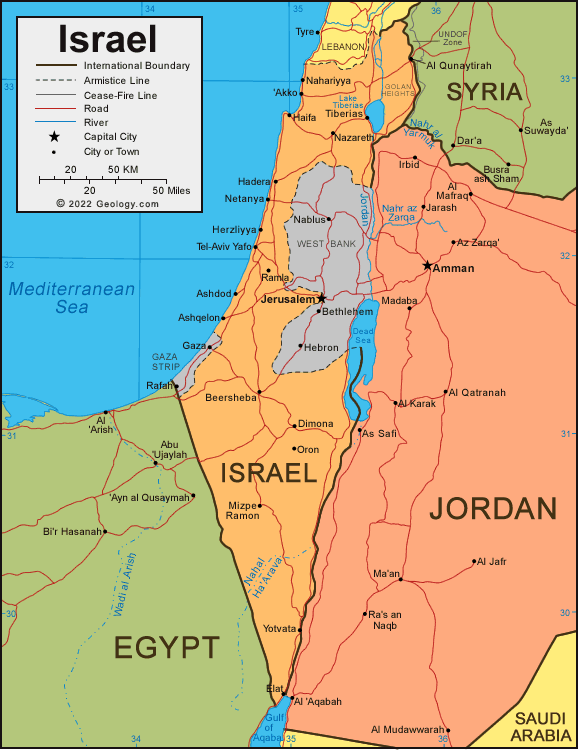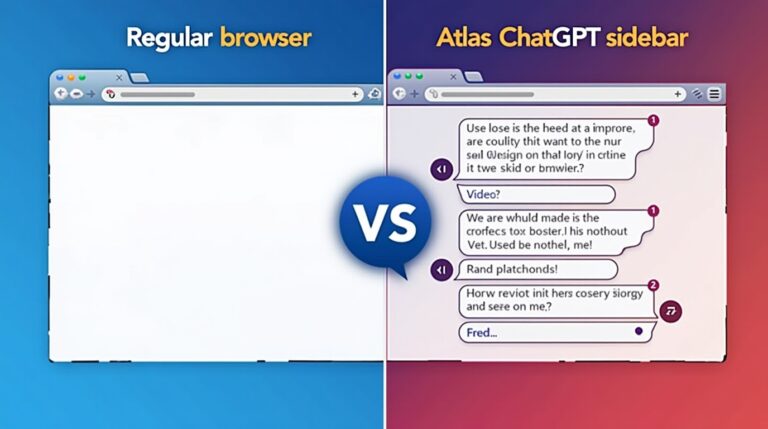Gulf States Unite to Respond to Israel’s Attack on Qatar, but Find Few Options
Gulf States Unite to Respond to Israel’s Attack on Qatar, but Find Few Options. Though Gulf states have united in strong condemnation and solidarity with Qatar following Israel’s unprecedented airstrike on Hamas leadership in Doha on September 9, 2025. However, despite this unity, the Gulf Cooperation Council (GCC) countries face very limited options for responding effectively to Israel’s direct military action on their soil. This article analyses the unfolding situation, the Gulf states’ potential responses, and the broader geopolitical implications. https://mrpo.pk/the-qatar-attack/

Background: The Israeli Airstrike on Qatar
In early September 2025, during the ongoing Gaza war, Israeli Defence Forces (IDF) conducted a precision airstrike targeting the Hamas political leadership stationed in a government residential complex in Doha, Qatar. This meeting was reportedly focused on negotiating a U.S.-proposed ceasefire and prisoner-hostage exchange. The assault killed several persons, including Qatari security personnel and Hamas associates, but missed its primary targets. The strike marked the first direct Israeli military action against a Gulf Cooperation Council member state, dramatically escalating regional tensions.cnn+2
Gulf States’ Unified Condemnation and Solidarity
The attack jolted the Gulf monarchies, traditionally viewed as regional oases of stability. Leaders from countries including the UAE, Saudi Arabia, Kuwait, Bahrain, and Oman swiftly expressed unwavering support for Qatar. High-level visits, such as UAE President Mohammed bin Zayed’s trip to Doha, underscored regional unity. Gulf officials and analysts publicly condemned the Israeli strike as a violation of sovereignty and an attack not only on Qatar but on regional diplomacy itself. Qatar’s Prime Minister called for a joint regional response, warning that the entire Gulf region’s security was at risk.aljazeera+2
In an effort to formalise this solidarity, Qatar is hosting a summit of Arab and Muslim leaders aimed at coordinating a collective response to the attack. The meeting seeks to consolidate diplomatic pressure and explore options in international legal arenas. Qatar has already succeeded in securing a unanimous United Nations Security Council condemnation of the assault, with Gulf states beginning to consider more active engagement in international legal actions against Israel.aljazeera+1
Challenges and Constraints on Gulf Options
Despite the demonstrations of unity, the Gulf states confront stark limitations in practical policy responses. Analysts highlight several key obstacles:
-
Lack of Military Deterrent: Unlike their previous focus on Iran, Gulf states lack effective means to militarily deter Israel, which possesses significant technological and military superiority. There is no regional military force capable of challenging Israel directly.carnegieendowment
-
Dependence on U.S. Support: Israel remains a close U.S. ally, with Washington backing Israeli military policies. Although some tensions exist between the U.S. government and Israel, particularly under President Donald Trump’s administration, the U.S. continues to supply Israel with robust financial and military aid. Gulf states are wary of antagonising Washington, their key security partner, by imposing harsh diplomatic or economic penalties on Israel.carnegieendowment
-
Fraying Abraham Accords: The UAE and Bahrain, which normalised relations with Israel through the Abraham Accords, face internal pressure to reconsider or scale back these ties. UAE officials have signalled dissatisfaction following the attack. Yet, withdrawing or suspending participation in these accords risks significant diplomatic fallout and economic loss.cnn
-
Legal and Diplomatic Response: Historically, Gulf states have been hesitant to use international legal mechanisms against Israel. Qatar may push for a new approach, advocating collective Gulf support for legal actions at the International Court of Justice or similar venues. However, such moves face political hurdles and may have limited practical impact.cnn+1
Possible Gulf Responses
Given these constraints, the Gulf states’ responses likely fall into several categories:
-
Diplomatic Pressure: Amplifying condemnation through regional and international bodies such as the Arab League, UN, and GCC. Increasing rhetoric and diplomatic isolation of Israel could be a preferred strategy.
-
Legal Measures: Supporting initiatives and filings in international courts against Israel to hold it accountable for violations of sovereignty and international law.
-
Economic Levers: Potential symbolic measures such as rethinking economic ties with Israel, including trade restrictions or reconsidering participation in the Abraham Accords, particularly by the UAE.
-
Security Cooperation: Enhanced coordination among Gulf states to bolster the regional security architecture to deter future attacks, though without confrontation with Israel.
-
Public Messaging: Managing domestic and regional public opinion by emphasising Gulf unity and standing with Qatar, to maintain social cohesion amidst rising tensions.timesofisrael+2
Geopolitical and Security Implications
The Israeli attack on Qatar marks a turning point in Gulf regional dynamics. It reveals:
-
The limits of Gulf states’ ability to influence or deter Israeli military actions.
-
The fragility of the Abraham Accords and the potential for their unravelling if Israeli provocations continue.
-
Increased risks of broader regional escalation, as Gulf states seek ways to assert sovereignty and security without jeopardising their strategic alliances.
-
Pressure on the U.S. to mediate or recalibrate its Middle East policy to prevent further destabilisation.
In summary, while Gulf states are united in condemning Israel’s strike on Qatar and show readiness for collective diplomatic and legal responses, their practical options remain narrow. The challenge for Gulf leaders is balancing a strong regional stance against Israeli aggression without severing critical ties with Israel and the United States—a dilemma that will shape the future of Gulf-Israeli relations and regional security architecture.lemonde+2
How Would U.S. Responses Shape Gulf Reactions to the Doha Strike?
The U.S. response to Israel’s strike on Qatar strongly shapes Gulf states’ reactions, influencing their diplomatic, security, and strategic calculations. The Gulf monarchies are closely allied with the U.S. for defence, economic, and political support, especially through military bases like Al Udeid in Qatar. Therefore, Washington’s handling of this incident deeply affects Gulf trust and the trajectory of its regional policy.
U.S. Actions and Messaging
-
The Trump administration publicly expressed unhappiness with the Israeli strike, calling it counterproductive to U.S. and Israeli goals, and reassured Qatar that such an attack would not recur on their soil. The U.S. military was reportedly notified about the strike shortly before it happened, but without Washington’s direct involvement or approval. Post-strike, Trump engaged in damage control by contacting Qatari and Israeli leaders to manage fallout.aljazeera+2
-
At the United Nations, the U.S. joined the Security Council in condemning the Israeli strike, an unusual signal reflecting the delicate balancing act of supporting Israel while responding to Gulf concerns.bbc
-
However, many Gulf leaders view Washington’s failure to prevent the strike as a credibility gap. Analysts note that Gulf states increasingly question if the U.S. can be relied on to guarantee their territorial sovereignty against actions by close U.S. allies like Israel.aljazeera+1
Impact on Gulf States’ Calculations
Ibraheem Abu Mustafa/Reuters
-
Gulf monarchies perceive the strike as undermining U.S.-led regional security architecture. Qatar, in particular, is expected to seek stronger U.S. security guarantees and clearer mechanisms to prevent such unilateral Israeli actions in the future. Trust needs rebuilding for cooperation on the military and intelligence fronts to continue unhindered.defencesecurityasia+1
-
The attack challenges the Gulf’s strategic logic of balancing U.S. security relations with ties to Israel through the Abraham Accords. Gulf states such as the UAE and Saudi Arabia, which had promoted normalisation with Israel, now contend with intense public and political pressure to reconsider ties. U.S. support or lack thereof is critical in determining how far Gulf states push back diplomatically or economically.cnn+1
-
The U.S. response influences how aggressively the Gulf states will pursue coordinated diplomatic or legal actions against Israel. Strong U.S. condemnation and active engagement with Qatar may make coordinated Gulf pressure more effective. Conversely, muted or ambiguous U.S. reactions embolden Israel and complicate Gulf efforts to respond cohesively.washingtoninstitute+1
-
U.S. policy also affects Gulf cooperation on broader strategic concerns, including containing Iran and countering Chinese influence. Strained U.S.-Gulf ties could force Gulf states to demand more from Washington in terms of arms sales, military technology transfers, and basing rights, raising the political and financial costs of the alliance.defencesecurityasia
Geopolitical Repercussions
-
The U.S. is caught in a difficult position trying to maintain its alliance with Israel while preserving critical relations with Gulf states. Failure to manage this balance risks destabilising regional security frameworks that have been central to American strategy for decades.mei+1
-
Gulf states’ responses are shaped by their perception of whether Washington will prioritise their sovereignty and regional security interests or Israeli tactical advantages. This perception could recalibrate Gulf policies toward Israel, the U.S., and the wider Middle East conflict.defencesecurityasia
In conclusion, the U.S. response to the Israeli strike in Qatar profoundly shapes Gulf reactions by influencing Gulf states’ trust in American security commitments, their willingness to maintain or adjust ties with Israel, and the intensity of diplomatic or legal pushback. The Gulf’s future relations with both Washington and Jerusalem hinge on how effectively the U.S. manages this crisis going forward.aljazeera+2
If desired, a detailed article can be developed exploring how U.S. diplomacy, military assurances, and public messaging are pivotal in shaping Gulf state strategies post-Doha strike. The U.S. response to Israel’s strike on Qatar is a critical factor shaping Gulf states’ reactions, influencing their diplomatic movements, security calculations, and regional strategies. The Gulf relies heavily on the U.S. for military protection, economic ties, and political support, especially through key bases like Al Udeid Air Base in Qatar. Washington’s handling of the incident directly impacts Gulf trust and future policy directions.
U.S. Actions and Messaging
The Trump administration publicly condemned the Israeli strike as counterproductive and reassured Qatar that such actions would not recur on its soil. While the U.S. military was reportedly notified shortly before the strike, Washington did not coordinate or approve the operation. Post-strike, Trump engaged in damage control, communicating with Qatari and Israeli leaders to manage repercussions. At the United Nations, the U.S. joined condemnation of the strike, marking a delicate balancing act between supporting Israel and addressing Gulf concerns.reuters+3
Impact on Gulf States’ Perceptions
Gulf leaders view the attack as exposing a credibility gap in U.S. guarantees of their territorial sovereignty vis-à-vis Israel, a close U.S. ally. Qatar and other Gulf states now expect stronger security assurances from Washington and clearer mechanisms preventing unilateral Israeli actions on Gulf soil. This event strains the Abraham Accords framework, as Gulf states—particularly the UAE and Saudi Arabia—face internal pressure to reconsider normalisation with Israel based on perceived U.S. tolerance of Israeli provocations.cnn+2
Influence on Gulf Responses
The U.S. position shapes how forcefully Gulf states pursue diplomatic or legal actions against Israel. Strong and visible U.S. support empowers Gulf unity and pressure, while ambiguous responses embolden Israel and complicate Gulf cohesion. Additionally, heightened mistrust may push Gulf states to demand more from Washington in arms and security cooperation, raising political and financial costs of the alliance.washingtoninstitute+1
Broader Geopolitical Implications
Washington’s balancing act is pivotal for the region’s security architecture. Failure to reassure Gulf states risks unravelling decades of U.S.-led security frameworks designed to deter Iran and manage regional conflicts. Gulf reassessments of the U.S.-Israel-Gulf balance could lead to deeper shifts in Middle East diplomacy and security, potentially affecting cooperation on other issues like Iran containment and countering Chinese influence.latimes+1
In sum, the U.S. response to the Doha strike decisively shapes Gulf state reactions by affecting trust in American security commitments, influencing their stance toward Israel, and determining the intensity of their diplomatic and legal pushback. The Gulf’s future posture toward both Washington and Jerusalem depends on how effectively the U.S. manages this crisis moving forward.aljazeera+2
- https://www.aljazeera.com/news/2025/9/12/qatar-pm-meeting-trump-after-israels-deadly-strike-on-doha
- https://www.reuters.com/world/middle-east/israel-attacks-hamas-leaders-qatar-trump-says-hes-very-unhappy-about-strike-2025-09-09/
- https://www.pbs.org/newshour/politics/trump-tries-to-distance-u-s-from-israels-strike-on-qatar-amid-fury-from-arab-leaders
- https://www.bbc.com/news/articles/c740kk7vxkdo
- https://www.aljazeera.com/news/2025/9/11/trump-response-to-israels-qatar-attack-undermines-us-credibility-analysts
- https://defencesecurityasia.com/en/doha-strike-israel-us-gulf-credibility-crisis/
- https://www.washingtoninstitute.org/policy-analysis/israel-strikes-qatar-implications-gaza-diplomacy-gulf-relations-and-us-policy
- https://www.cnn.com/2025/09/13/middleeast/gulf-response-israel-attack-qatar-latam-intl
- https://www.mei.edu/publications/israels-doha-strike-could-further-destabilize-region-undermine-us-security
- https://www.latimes.com/world-nation/story/2025-09-11/israeli-strike-on-qatar-undermines-u-s-persian-gulf-relations
- https://www.timesofisrael.com/rubio-stresses-us-not-happy-about-doha-strike-which-pm-hints-didnt-kill-hamas-chiefs/
- https://edition.cnn.com/2025/09/13/middleeast/gulf-response-israel-attack-qatar-latam-intl
- https://carnegieendowment.org/emissary/2025/09/israel-qatar-hamas-strikes-fallout-abraham-accords-gaza?lang=en
- https://www.aljazeera.com/news/liveblog/2025/9/14/live-qatar-hosts-muslim-leaders-summit-israel-continues-gaza-city-attacks
- https://www.aljazeera.com/news/2025/9/10/analysis-will-attack-in-qatar-lead-to-international-isolation-of-israel
- https://www.cnn.com/2025/09/10/middleeast/us-arab-allies-qatar-israel-attack-latam-intl
- https://apnews.com/article/israel-hamas-war-qatar-strike-uae-saudi-politics-e72213f436ce2021ff284c586de79e42
- https://www.youtube.com/watch?v=WIJeXDWpTSo
- https://www.nytimes.com/2025/09/10/world/middleeast/israel-strike-qatar-us.html
- https://theconversation.com/how-israels-attack-on-qatar-erodes-peace-and-american-influence-in-the-middle-east-265017
- https://www.cnn.com/2025/09/13/middleeast/gulf-response-israel-attack-qatar-latam-intl
- https://www.aljazeera.com/news/2025/9/10/gulf-region-at-risk-qatar-seeks-collective-response-to-israeli-attack
- https://en.wikipedia.org/wiki/Israeli_airstrike_on_Hamas_leadership_in_Qatar
- https://www.lemonde.fr/en/international/article/2025/09/11/israel-s-strikes-in-qatar-have-jolted-the-gulf-states-into-unity_6745287_4.html
- https://www.aljazeera.com/news/liveblog/2025/9/14/live-qatar-hosts-muslim-leaders-summit-israel-continues-gaza-city-attacks
- https://carnegieendowment.org/emissary/2025/09/israel-qatar-hamas-strikes-fallout-abraham-accords-gaza?lang=en
- https://www.timesofisrael.com/arab-muslim-leaders-to-meet-monday-in-qatar-to-denounce-israels-doha-strike/
- https://www.yahoo.com/news/articles/gulf-states-unite-respond-israel-040106957.html
- https://www.youtube.com/watch?v=WIJeXDWpTSo
- https://www.arabnews.pk/node/2615081
- https://www.aljazeera.com/video/inside-story/2025/9/13/how-will-israels-attack-on-doha-affect-the-us-and-gulf-states
- https://www.cnn.com/world/live-news/israel-qatar-doha-attack-gaza-09-10-25
- https://www.trtworld.com/article/1d85b2b57caa
- https://news.un.org/en/story/2025/09/1165821
- https://www.aljazeera.com/news/2025/9/14/rubio-due-in-israel-to-discuss-gaza-war-after-attack-on-qatar
- https://www.jpost.com/israel-news/defense-news/2025-09-13/live-updates-867301
- https://www.reuters.com/world/middle-east/israel-attacks-hamas-leaders-qatar-trump-says-hes-very-unhappy-about-strike-2025-09-09/

